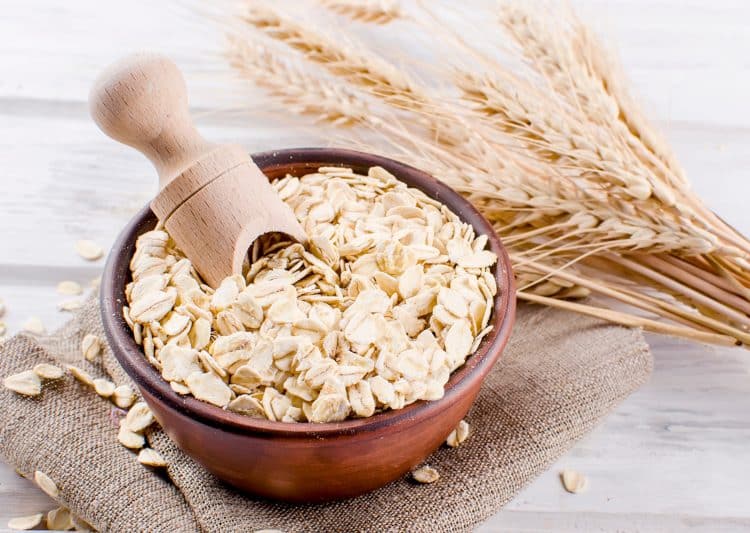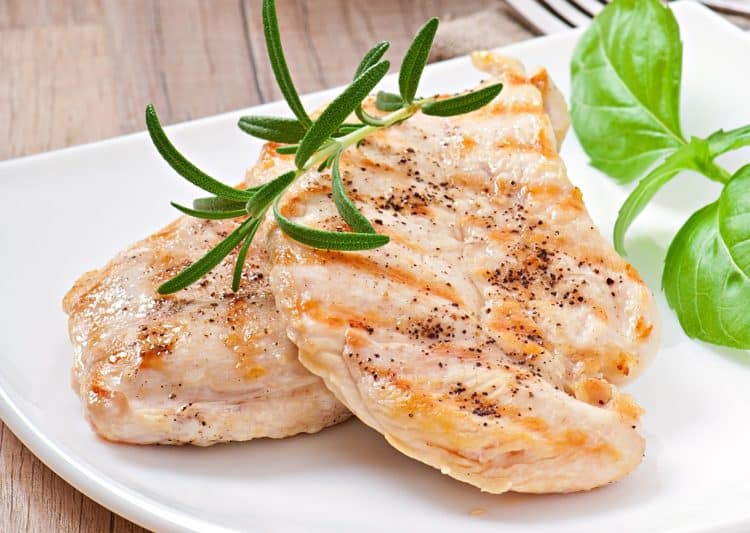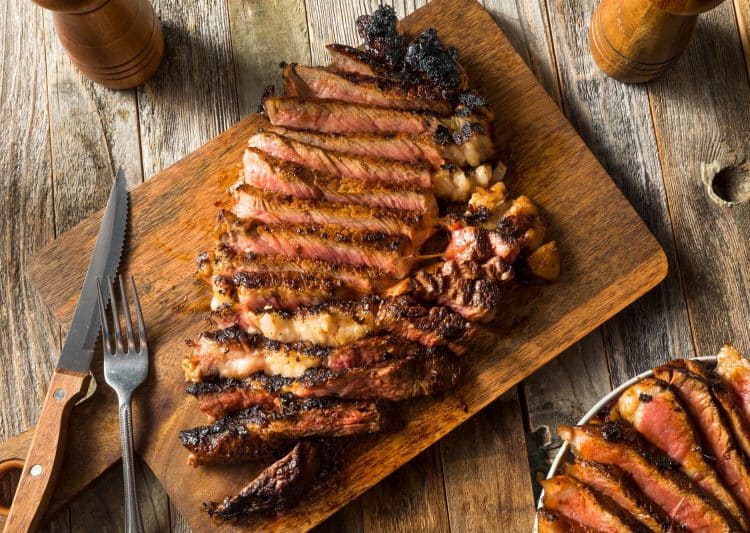Our highly ‘efficient’ and sedentary lifestyle has made people obese and lazy. Obesity is increasing at an alarming rate, which is a huge cause of concern for doctors and healthcare professionals worldwide. Studies suggest obesity is often the precursor to various serious health hazards like diabetes, cardiovascular disease, stroke, cancer, etc. [1]
To tackle this problem, experts suggest various lifestyle changes such as regular exercise, fasting, and keto or calorie-restricted diets. The 1,700-calorie meal plan is a calorie-restriction diet that can help people struggling with obesity.
In this article, we will further discuss how a 1,700-calorie meal plan works and the pros and cons associated with it so you can have a better idea of this diet and if it is ideal for you.
What is a 1,700-Calorie Meal Plan?
A 1,700-calorie meal plan is an effective calorie-restrictive diet, which allows a person to consume only 1,700 calories in an entire day. This includes breakfast, lunch, dinner, and small snacks. Nutritionists or doctors who prepare these diet plans add essential proteins, fats, and carbohydrates necessary for the proper functioning and growth of the body, making it a completely balanced diet program. [2]

It is essential to point out that everyone is different, and the 1,700 calories are taken as a baseline while preparing the meal to better suit the individual. Also, a 1,700-calorie plan does not have to include three meals daily. If you are accustomed to two meals a day, you can divide the 1,700 calories between two meals and still enjoy the benefits of this diet plan.
Level Up Your Fitness: Join our 💪 strong community in Fitness Volt Newsletter. Get daily inspiration, expert-backed workouts, nutrition tips, the latest in strength sports, and the support you need to reach your goals. Subscribe for free!
What Does a 1,700-Calorie Meal Plan Look Like?
This is what the macros of an average 1,700-calorie meal plan should look like:
| Macronutrient Type | Percentage | Goal Amount | Calories |
| Carbohydrates | 50% | 212 grams | 850 calories |
| Proteins | 10-30% | 50-60 grams | 170-459 calories |
| Fats | 20-30% | 100-125 grams | 340-450 calories |
It is essential to point out that the numbers mentioned above are an average estimation of the macro breakdown of a balanced 1,700-calorie meal. These values can significantly differ depending on the age, sex, and body measurements of different people.
Science Behind The 1,700-Calorie Meal Plan
To better understand the science behind the 1,700-calorie meal plan, you must first understand how our body functions. It is common knowledge that our body requires energy to work daily; this energy is quantified as calories. Scientists suggest that an average man and woman need 2,000 and 2,100 calories daily to function properly and maintain a healthy weight.
With a 1,700-calorie meal, we are essentially creating a 300 to 400-calorie deficit daily. Once this calorie deficit is created, the body is forced to convert stored fat to energy. This process is continued every day, eventually leading to weight loss as the accumulated fat deposits are exhausted.
Does A 1,700-Calorie Meal Plan Actually Help?
Calorie-restrictive diets like the 1,700-calorie meal plan have been here for a long time, and there have been studies suggesting that these meal plans can help tackle obesity. However, it is essential to note that our body is complex. To lose weight effectively, we must combine a proper exercise routine with a balanced 1,700-calorie meal plan while emphasizing the food source quality. [3]
How to Track Calories Throughout a Day
Keeping track of calories consumed throughout the day can be a lot of work. Here are a few tips to help you in the process:
- Track your meals: Tracking calories might seem challenging, but it is also the most effective method to stay on track with a 1,700-calorie meal plan. Nowadays, most food items have a nutrition level indicator, which determines the number of calories in them. A kitchen scale can come in handy for calculating the exact weight of a food item.
- Keep track of the energy you’ve burnt: Keeping track of the calories you’ve burnt during a day is also essential. It somewhat gives you a perspective on your 1,700-calorie goal. Nowadays, some fitness trackers can give you the exact reading of the energy you have expended in a day based on your exercise, heart rate, and walking patterns.
- Use calorie counting apps: Technology has simplified our lives in many ways. The different calorie-counting apps make counting calories so much easier. You just have to enter the weight and type of food item into the calorie counting app, and the app will instantly give you the approximate calorific value of the food item.
Buying a 1,700-Calorie Meal Plan vs. Making it Yourself: Which Is Better?
Many fitness experts recommend generic 1,700-calorie meal plans. While there is nothing wrong with these meal plans, for long-term benefits, you should consult a nutritionist who can help you make a perfect 1,700-calorie meal plan as per your body type and lifestyle. [4]
Benefits of Following a 1,700-Calorie Meal Plan
Here are a few benefits of following a calorie-restrictive diet:
1. Weight Loss
Weight loss is one of the primary benefits of following a 1,700-calorie meal plan. The weight loss process in a well-defined meal plan is gradual, steady, and healthy. [5][6]
2. Better Lifestyle
A calorie-restricted diet forces us to watch what we eat, which is a fantastic habit. A 1,700-calorie meal plan will often stop you from eating junk food, which is a root cause of obesity. Also, once you start counting your calories, you are more regular in your workout routine and stay much more active.
3. Customized Diet
Most people think following a calorie-restricting plan would mean eating the same bland food daily. It is not the case since a calorie-restricting diet gives you a caloric measure, and you can explore and introduce new food items in your diet plan.
Downsides of Following a 1,700-Calorie Meal Plan
Here are some downsides of following a 1,700-calorie meal plan:
- Need to keep track of your calories: Daily calorie tracking can get a bit overwhelming, so much so that it might push you to stop following the plan entirely.
- Should devote time to plan the meal: Following the 1,700-calorie meal plan requires planning your everyday meals in advance. You have to ensure the meal chosen by you has all the necessary macronutrients like protein, carbs, and fat and is still under the 1,700-calorie mark.
- Long and slow: A 1,700-calorie plan or any calorie-restricting diet can be slow compared to other common diet options. Many people might lose patience and stop following the plan.
Tips For Successfully Following The 1,700 Calorie Meal Plan
Like all other diets, a 1,700-calorie meal plan needs a bit of discipline and perseverance on your part. Here are a few tips that can help you stay on track while following the 1,700-calorie meal plan:
- Have an end goal before you begin: Having a clear foresight and planning out your meals and fitness goals in advance can be a game changer for people trying out this diet for the first time.
- Don’t eat too fast: Eating food quickly is a bad habit, and when it comes to following diets that only allow a certain number of calories, it can be detrimental. You should chew your food properly and enjoy your meal; it also aids in digestion.
- Don’t eat pre-packed food with preservatives: Eating pre-packaged food sometimes is okay, but eating such meals daily is never a good idea. Also, homemade food is more nutritious, and you can better control the ingredient quality.
- Exercise regularly: Regular exercise, regardless of your body type, is one of the best things you can do because it has many health benefits. Physical activity and a balanced 1,700-calorie meal will accelerate weight loss and help you build lean muscle.
How To Plan a 1,700-Calorie Meal Plan?
You can set up a week-by-week meal plan to stay on track. Planning your meals will help you have a variety of foods and keep the ingredients ready in your kitchen when you need them.
- Divide calories between different meals: One of the advantages of following a 1,700-calorie meal plan is that you can properly plan the meals beforehand. Also, this will help you to stay within the allocated 1,700 calories.
- Devote more calories to the morning meal: The morning meal is considered one of the most important meals of the day and it should reflect in the calories allocated. Carbs provide quick energy, so include a good amount of carbs and protein in the morning meal.
- Have fewer calories in lunch: After a filling breakfast, it is a good idea to have a slightly lighter lunch. Nutritionists suggest including fiber-rich foods like green salads, as these are filling and low in calories. Adding some lean protein and whole grains is a good option for lunch. You should decide on adequate portion sizes to mind your calories. [7]
- Least calories in dinner: We do not require a lot of energy at night. So it is better to have a light dinner, which can include lean proteins and veggies. Soups are also an excellent option for dinner.
- Choose your snacks wisely: Snacks can make or break your diet plan since it is very easy to binge on them, which can easily blow your calorie goal. You should ensure your snacks are pre-portioned and do not exceed the 100-calorie mark. Here is a list of some healthy protein-packed snack options.
Sample 1,700-Calorie Meal Plan
Here is a meal plan to help you start with the 1700-calorie diet program. This plan is a basic guide. You can always make changes based on your food preferences.
Level Up Your Fitness: Join our 💪 strong community in Fitness Volt Newsletter. Get daily inspiration, expert-backed workouts, nutrition tips, the latest in strength sports, and the support you need to reach your goals. Subscribe for free!
1. Breakfast

Option 1: Overnight Oats mixed with chia, sunflower, and pumpkin seeds, topped with seasonal berries or a ripe banana.
- 50gms of rolled oats
- 120ml of milk
- 1 tablespoon of chia seeds
- 50gms of yogurt
- 1 tablespoon of honey
- 1 ripe banana or a few seasonal berries
Nutritional Facts per serving (approx): 450 kcal
- Carbs: 55 gms
- Protein: 17 gms
- Fats: 16 gms
Option 2: Two eggs cooked with spinach or mushrooms, accompanied by two slices of whole wheat bread slices with some unsweetened coffee or tea.
- 2 eggs
- Half a cup of spinach or mushroom
- 2 slices plain toasted bread
- 1 cup unsweetened coffee or tea
Nutritional Facts per serving (approx): 500 kcal
- Carbs: 51 gms
- Protein: 21 gms
- Fats: 20 gms
2. Lunch

Option 1: 2-3 ounces of grilled chicken breast sandwich with a side of mixed green salad drizzled with a low-fat vinaigrette.
- 2-3 ounces of chicken breast
- Mixed greens 1 small bowl
- 5 tablespoon vinaigrette
- 2 slices whole wheat bread
Nutritional Facts per serving (approx): 475 kcal
- Carbs: 35 gms
- Protein: 25 gms
- Fats: 18 gms
Option 2: Chicken wraps with whole wheat tortillas are made with a side of tomatoes, lettuce, and low-fat greek yogurt. Some cheese can also be added.
- 2 ounces chicken
- 1 whole wheat tortilla
- Half cup lettuce
- Half tomato
- Greek yogurt
- Optional cheese
Nutritional Facts per serving (approx): 550 kcal
- Carbs: 40 gms
- Protein: 35 gms
- Fats: 15 gms
3. Dinner

Option 1: Steak with some sweet potato.
- 3 ounces of lean steak
- 1 small sweet potato
Nutritional Facts per serving (approx): 400 kcal
- Carbs: 35 gms
- Proteins: 30 gms
- Fats: 12 gms
Option 2: Whole grain pasta with meatballs in tomato sauce.
- 1.5 cups whole wheat pasta
- 1 cup of low-fat turkey meatballs
- Tomato sauce
Nutritional Facts per serving (approx): 600 kcal
- Carbs: 38 gms
- Proteins: 25 gms
- Fats: 16 gms
4. Snacks
A small portion of air-popped popcorn, an apple, a small cup of watermelon or papaya, or a cup of non-fat yogurt.
Frequently Asked Questions
1. Are there any chances of gaining weight with a 1,700-calorie meal plan?
Yes, gaining weight on a 1,700-calorie meal plan is possible. If your daily calorie expenditure is less than 1,700 calories and you are consuming more than your daily requirement, you will eventually gain weight over the long term.
2. Is a 1,700-calorie meal plan safe to follow?
Although it is pretty safe for an average person to follow the 1,700-meal plan, you should consult a qualified nutritionist before switching to a new diet program.
3. Is a 1,700-calorie meal plan safe for teenagers?
Since the teenage years are a person’s formative years, it is better to take the advice of a healthcare professional before trying the 1,700-calorie meal plan.
4. Why is the 1,700-calorie meal plan not helping me lose weight?
Losing weight via the 1,700-calorie meal plan is generally slow, and the results might be delayed. You should enroll in a regular exercise program to speed up your weight loss.
5. How can I eat 140 grams of protein in a 1,700-calorie meal plan?
Adding lean chicken breasts or egg whites to your meal plan is a great way to increase your daily protein intake. Also, you can add whey protein supplements to increase your overall protein intake. Take a look at some protein shake options to try while following the 1,700-calorie meal plan.
6. Can I lose weight with a 1,700-calorie meal plan without exercising?
Yes, losing weight using the 1,700-calorie meal plan is possible, but you should not expect it to happen overnight. You will need a lot of patience, discipline, and willpower.
7. Are 1,700 calories enough for a day?
On average, people require between 2,000 to 2,100 calories per day, so no, 1,700 calories are not ‘enough’ and are on the lower end. However, this diet is effective in helping burn your stored fat.
8. Do I need any supplements to assist my 1,700-calorie meal plan?
Although you could follow a balanced diet without supplements, it is easier to achieve your macronutrient goals by using supplements like proteins and multivitamins.
Final Thoughts
The 1,700-calorie meal plan is an effective program for people who want to lose weight in the long run without making extreme diet changes. It provides certain flexibility to get used to calorie-restrictive diets. While switching to this diet, you should ensure that your meal plan includes a healthy mix of proteins, carbohydrates, fats, and other nutrients.
In the end, 1,700 calories or any time or calorie-restricting meal plans are meant to discipline our eating habits. You should not look at these as a one-time thing, instead, make fasting, portion control, and exercise part of your routine to lead a healthy and active life.
References
- Pi-Sunyer, X. (n.d.). The Medical Risks of Obesity – PMC. PubMed Central (PMC). Retrieved October 19, 2022, from https://www.ncbi.nlm.nih.gov/pmc/articles/PMC2879283/
- Table 21, Popular Diet Programs and Books (46) – Endotext – NCBI Bookshelf. (n.d.). Table 21, Popular Diet Programs and Books (46) – Endotext – NCBI Bookshelf. Retrieved October 19, 2022, from https://www.ncbi.nlm.nih.gov/books/NBK278991/table/diet-treatment-obes.table21pop_1/
- Benton, D., & Young, H. A. (2017, June 28). Reducing Calorie Intake May Not Help You Lose Body Weight – PMC. PubMed Central (PMC). Retrieved October 19, 2022, from https://www.ncbi.nlm.nih.gov/pmc/articles/PMC5639963/
- Kim, J. Y. (2020, October 27). Optimal Diet Strategies for Weight Loss and Weight Loss Maintenance – PMC. PubMed Central (PMC). Retrieved October 19, 2022, from https://www.ncbi.nlm.nih.gov/pmc/articles/PMC8017325/
- Piehowski, K. E., Preston, A. G., Miller, D. L., & Nickols-Richardson, S. M. (n.d.). A reduced-calorie dietary pattern including a daily sweet snack promotes body weight reduction and body composition improvements in premenopausal women who are overweight and obese: a pilot study – PMC. PubMed Central (PMC). Retrieved October 19, 2022, from https://www.ncbi.nlm.nih.gov/pmc/articles/PMC3175790/
- Clark, J. E. (2015, April 17). Diet, exercise or diet with exercise: comparing the effectiveness of treatment options for weight-loss and changes in fitness for adults (18–65 years old) who are overfat, or obese; systematic review and meta-analysis – PMC. PubMed Central (PMC). Retrieved October 19, 2022, from https://www.ncbi.nlm.nih.gov/pmc/articles/PMC4429709/
- The Influence of Portion Size and Timing of Meals on Weight Balance and Obesity – PubMed. (2015, March 1). PubMed. Retrieved October 19, 2022, from https://pubmed.ncbi.nlm.nih.gov/26627086/













